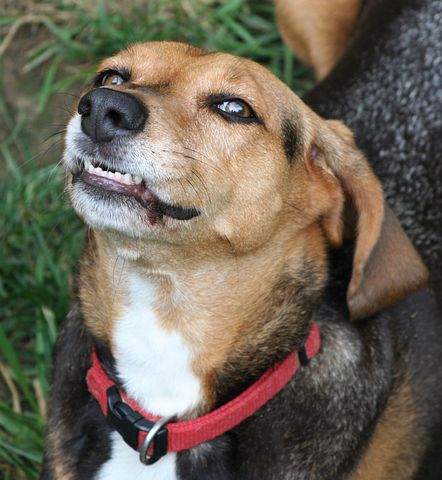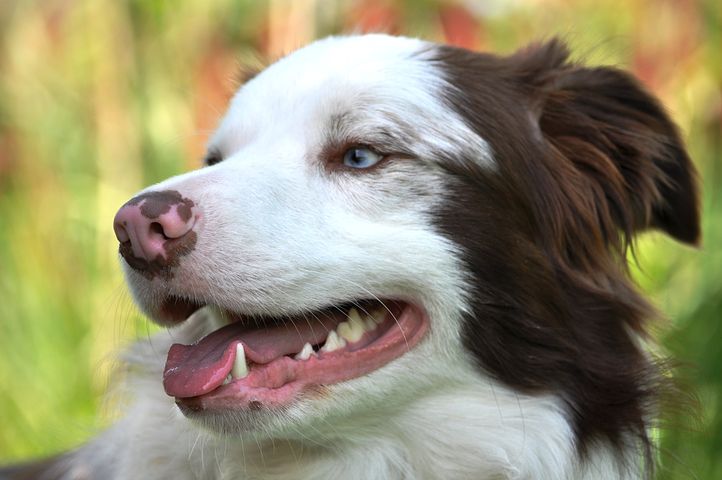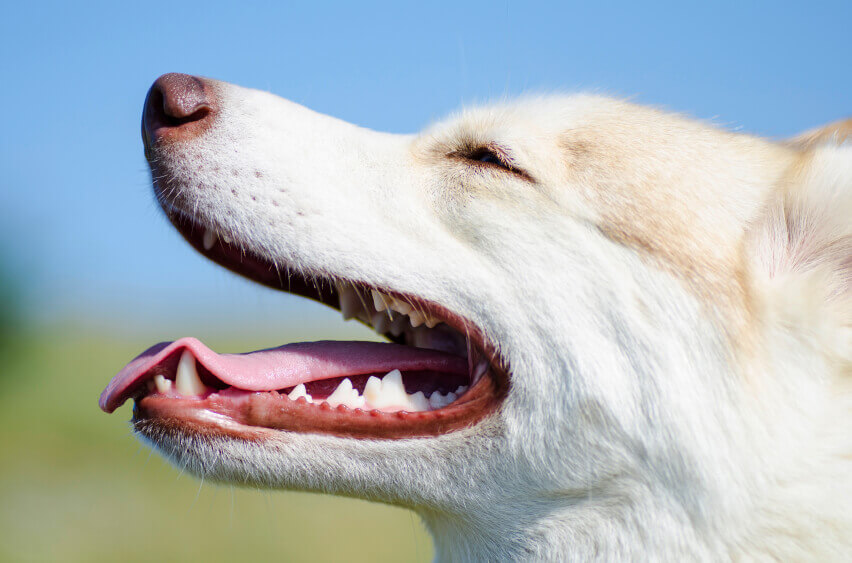You know your dog’s teeth aren’t going to clean themselves and you also know your dog is subject to plaque buildup and periodontal disease just like humans. It’s no secret that professional dog dental cleaning is important. However, one question we’re frequently asked is how much does dog dental care cost? It’s a natural question - after all, we understand healthcare costs are on everyone’s mind these days. Unfortunately, like many health services, it’s difficult to give a single price because “it depends.”
Let’s look at the various factors that contribute to the fees.
Cost of Professional Teeth Cleaning
 According to PetMD.com, “Dog teeth cleaning costs vary across the board and are influenced by a slew of different factors. If you live in a high cost area, such as a large city, you can expect to pay more. A cleaning might only cost a few hundred dollars, but you might end up paying a few thousand dollars if your pet is having oral surgery like an extraction involving a large tooth. One of the biggest factors behind the high costs? Anesthesia and X-rays.
According to PetMD.com, “Dog teeth cleaning costs vary across the board and are influenced by a slew of different factors. If you live in a high cost area, such as a large city, you can expect to pay more. A cleaning might only cost a few hundred dollars, but you might end up paying a few thousand dollars if your pet is having oral surgery like an extraction involving a large tooth. One of the biggest factors behind the high costs? Anesthesia and X-rays.
“Dental X-rays are really important to assessing periodontal disease and the health of teeth below the gum line. Unfortunately, they require anesthesia,” says Glenn Brigden, DVM at Pacific Coast Veterinary Dentistry and Oral Surgery in Encinitas, Calif., and a Diplomat of the American Veterinary Dental College. And anesthesia tends to be pricey.
“Costs can vary significantly with region of the country and degree of dental disease,” says Morgan. “I own two practices in southern New Jersey and our dental prices range from around $500 up to $1,000. These prices do not include oral radiographs, which could add $150 to $200 more.” An important consideration if you’re comparing prices is to find out what’s included in your dog’s dental exam. “It's difficult to compare pricing because someone with a lower cost may not be providing pre-op screening, IV fluids, or certified technicians,” says Morgan. (Source)
The right preparation (including pre-op screening) and having certified technicians and emergency equipment are important elements in ensuring your dog’s comfort and safety. In fact, dental cleaning standards are so important to your dog’s dental care that the American Animal Hospital Association (AAHA) mandated that “all AAHA accredited practices must perform dental procedures under general anesthesia with patients intubated using a properly placed breathing tube.” (Source)
The Benefits of Anesthesia for Dog Dental Care
- Immobilizes the animal to insure his safety and cooperation during a confusing, stressful procedure.
- Provides for effective pain management during the procedure.
- Allows for a careful and complete examination of all surfaces inside the oral cavity, as well as the taking of x-rays.
- Permits the veterinarian to probe and scale as deeply as necessary below the gum line where 60 percent or more of plaque and tartar accumulates.
Intubation while the patient is under general anesthesia protects the trachea and prevents aspiration of water and oral debris.” (Source)
As you see, anesthesia is an important part of a thorough professional dog dental cleaning. It keeps your dog safe and relatively comfortable and allows us to clean deeply. Of course, if you’re like a many pet owners, you might wonder how you can clean your dog’s teeth in between professional cleaning. There’s brushing your dog’s teeth which we highly recommend. There are also a variety of dental chews on the market. However, be warned, some of them can hurt your dog.

Dental Chew Safety for Dogs
One way to fight tartar and plaque build up is to provide your dog with dental approved chews. But you’ll want to be careful. All doggie chews are not safe.
Take the deer antler chews for instance, more than one dog has broken a tooth on those and as you can probably guess, a broken tooth is both painful for your dog and expensive to fix. So while dogs love them, they’re not the best chews for your dog’s oral health.
In addition to our experiences, we also review the VOHC for recommendations. “The Veterinary Oral Health Council (VOHC) is an organization that evaluates pet products to see if they meet standards for reducing plaque or tartar.
Approved foods, treats, and chews must reduce plaque or tartar by at least 10% to achieve the VOHC seal of approval. If a chemical anti-plaque agent is used, it needs to reduce plaque or tartar by at least 20%. Go to http://www.vohc.org/accepted_products.htm to see which products have received the VOHC seal of approval.” The VOHC accepted products list is a good place to start. Also, you can discuss the best dental chews for dogs with your veterinarian. We’ll be happy to recommend a good product.
How Do Dog Chews Clean Your Dog’s Teeth?
Dogs that chew actively have less plaque build-up. And some types of dog dental treats and diets can reduce plaque by nearly 70%. How do they do this? Simply the mechanical action of chewing can make a difference. In one study, increasing the diameter of kibble by 50% led to a 42% reduction in tartar. In the same study, coating the products with a substance called polyphosphate further reduced tartar by 55%. It prevents plaque from turning into tartar by isolating calcium on teeth.”(Source)
Conclusion
As you can see, the pricing of dog dental care depends a lot on the state of your dog’s mouth. If he has advanced gum disease, it may cost more. Broken teeth and extractions will increase the bill. Unfortunately dogs being dogs, they can break their teeth on tree branches, the above mentioned deer antlers and many other things. It’s always good to talk with your veterinarian about preventive care. However, no matter how else you care for your dog’s teeth, he or she still needs regular professional dental care to stay healthy.
Is it time for your dog to have a dental cleaning? Give us a call to schedule an evaluation.
This blog originally appeared on Broad Ripple Animal Hospital and has been adapted with permission for reposting.

